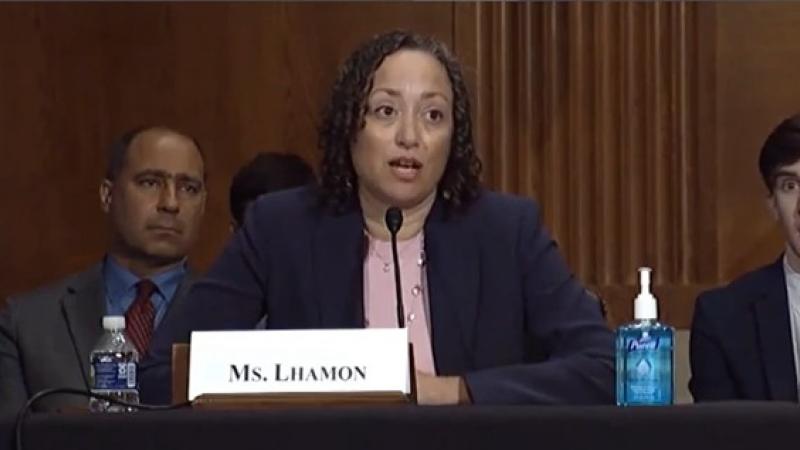Lawsuit reveals new evidence supporting 9/11 whistleblower who alleged intel failures
Inspector general "manipulated data and methodology" to discredit colonel who alleged intelligence failings.
An affidavit filed as part of a lawsuit brought by a 9/11 whistleblower has revealed sworn testimony by a former Department of Defense official claiming that the whistleblower, a former military intelligence officer, was deliberately sabotaged by a Pentagon review process.
Retired U.S. Army Col. Anthony Shaffer is suing his former attorney, Mark Zaid, in Washington, D.C.'s District Court over Zaid's alleged failure to "zealously represent" Shaffer in his fight against the government over what Shaffer claims was whistleblower retaliation.
Shaffer is known for his participation in the U.S. Special Operations Command Operation Able Danger, a program meant to counteract global terrorism.
The retired colonel told the 9/11 Commission in 2004 that Able Danger had, prior to the September 11 attacks, identified two of the three al-Qaeda cells that had planned the attack, including one to which Mohamed Atta, one of the attack's chief architects, belonged. Shaffer has alleged that the government subsequently destroyed evidence of its having been aware of Atta's identity prior to the attacks.
Shaffer claims that, following his testimony to the commission, he was retaliated against by his superiors in the Defense Intelligence Agency, which suspended and eventually revoked his security clearance.
According to Shaffer's lawsuit, Mark Zaid committed "legal malpractice" by failing to appropriately represent his client amid the alleged retaliation from government officials.
Zaid, founder of the nonprofit law firm Whistleblower Aid, represented the U.S. intelligence community source who triggered the impeachment investigation of President Trump when he claimed whistleblower protection to anonymously divulge details of a classified phone call between Trump and the president of Ukraine.
Zaid did not respond Friday to a request for comment on the suit's allegations.
Assistant I.G. says office engaged in manipulation to discredit Shaffer
Although Shaffer's lawsuit, which seeks millions in damages from Zaid, does not hinge on whether or not the colonel was the victim of whistleblower retaliation, documents connected to the suit make a startling claim: that Shaffer was the victim of both a coverup and a targeted retaliation campaign over his testimony to the 9/11 Commission as well as to Congress.
A disclosure of urgent concern, filed by former Department of Defense Assistant Inspector General John Crane, claims that the inspector general at the Department of Defense "manipulated the evidence and methodology to produce negative findings in regard to the veracity of LTC Shaffer," after which the IG "extrapolated the false findings in regard to veracity to support revoking the security clearance of LTC Shaffer and remove him from DIA service."
Crane filed the disclosure, together with an affidavit, with the Inspector General of the Intelligence Community, yet those documents have been "languishing since mid-2017," Shaffer told Just the News.
Shaffer's current attorney, Tim Parlatore, told Just the News that in addition to the suit against Zaid, they are looking into bringing the government into court over Crane's allegations.
"We can, and we are, filing a complaint with the Office of Special Counsel," Parlatore said, "because that's really the only avenue in the federal government to deal with it after all this time has passed."
Parlatore said that, upon learning about Crane's disclosure, Shaffer was initially "relying on the government to do the right thing."
"When a bombshell goes up through the chain of command, the expectation is that it results in immediate action," Parlatore said. "But it didn’t happen."
"If the government wants to send a message that whistleblowers will be protected — which they should — then the government should say, 'We don’t need to go into court or deal with statutes of limitations,'" he added.
Lawyer claimed a 'conflict of interest'
Crane's affidavit is being used to demonstrate Shaffer's claim that Zaid failed to properly represent him in his contentious multiyear fight with the federal government.
According to the lawsuit, Shaffer wanted Zaid to look into filing a retaliation claim using Crane's affidavit as the basis. Yet, when presented with that proposal, Zaid "immediately responded he would no longer be able to represent [Shaffer] as it was a conflict of interest." Zaid allegedly never disclosed the details of the conflict of interest.
Elsewhere in the lawsuit, Shaffer says that Zaid committed numerous legal blunders, such as failing to file for attorney's fees and failing to pursue damages on behalf of the colonel. Shaffer also says Zaid's advice led him to fail to file whistleblower retaliation claims within the necessary statute of limitations.
Parlatore says the suit was filed earlier this month to get ahead of a statute of limitations regarding such charges.
The suit alleges, though without presenting evidence, that "a conflict of interest may have existed long before the Crane affidavit came to light."
Zaid "represents several corrupt government officials," the suit alleges. "In retrospect, this may be the reason why Defendant never pursued Plaintiff's claims earlier, but the Crane affidavit brought the conflict to the surface, forcing Defendant to run away."















